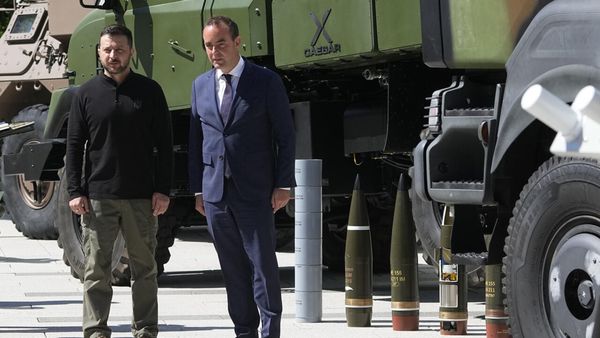
Iconic Western manufacturers and franchises are facing increasing pressure to pull their operations and products out of Russia as part of the global condemnation of the invasion of Ukraine.
Fast food giant McDonald’s and beverage company Coca-Cola have been attracting much of the anger, with #BoycottMcDonalds and #BoycottCocaCola trending on social media.
Early Wednesday morning, McDonald’s announced it is temporarily closing all of its 850 restaurants in Russia.
The burger giant said it will continue paying its 62,000 employees in Russia “who have poured their heart and soul into our McDonald’s brand”.
But in an open letter to employees, McDonald’s President and CEO Chris Kempckinski said closing those stores for now is the right thing to do.
“Our values mean we cannot ignore the needless human suffering unfolding in Ukraine,” Mr Kempczinski said.
PepsiCo, Coca-Cola and Starbucks joined the Russian ban later Wednesday morning.
“Our hearts are with the people who are enduring unconscionable effects from these tragic events in Ukraine,” Coke said in a brief statement.
Pepsi is not halting all of its Russian business, saying it will continue to sell some essential products including like baby formula, milk and baby food.
Other well-known firms such as KFC and Burger King have also been urged to close their outlets and stop sales in Russia.
It comes as a host of multinationals – including H&M, Ikea, Disney, Nike, TJX Cos, Apple, Netflix, TikTok, Mercedes-Benz, and Airbnb – have announced they have restricted or stopped their businesses in Russia.
Tweet from @incunabula
The KFC fast food chain has more than 1000 restaurants in Russia, and has stated an aim to open about 100 restaurants in the country each year.
McDonald’s recently revealed it has 847 stores in Russia since opening its first store in Moscow’s Pushkin Square in 1990, most of which are company owned rather than franchises.
Tweet from @snigskitchen
Mary Lovely from the Peterson Institute for International Economics told US broadcaster CBS that Russia was becoming a “commercial pariah”.
“Pretty much no company, no multinational, wants to be caught on the wrong side of US and Western sanctions.”
Ukrainian supermarket chain Novus last week announced it would stop selling Coca-Cola products, calling the company “shameless” for continuing to “work for the invaders in full strength”.
Supermarket chain Fozzy Group also said it was pulling products from shelves and stopping all future deliveries.
“From today, we are removing all products from the shelves of Silpo, Fora, Fozzy Cash&Carry, Market super Thrash (Thrash) stores and stop all future deliveries,” the company said, according to news agency Interfax-Ukraine.
Reputational risk
The head of the powerful New York state’s pension fund, Thomas DiNapoli, singled out McDonald’s and Pepsi in letters urging them to pull out of Russia.
The missive was also sent to other major businesses including cosmetics company Estee Lauder, confectionery giant Mondelez and paper business company Kimberly-Clark.
Mr DiNapoli warned the companies they face “significant and growing legal, compliance, operational, human rights and personnel, and reputational risks”, according to news agency Reuters.
A boycott from them would play a major role in “condemning Russia’s role in fundamentally undermining the international order”, he wrote, according to Reuters.
Dr Ian Peters, director of Britain’s Institute for Business Ethics, told the BBC, “this is not a time [for companies] to sit on the fence”.
“The world is likely to judge companies by what they do in such circumstances, and ethical judgment will be as important as complying with any government-led regulations and sanctions.”
-with agencies







